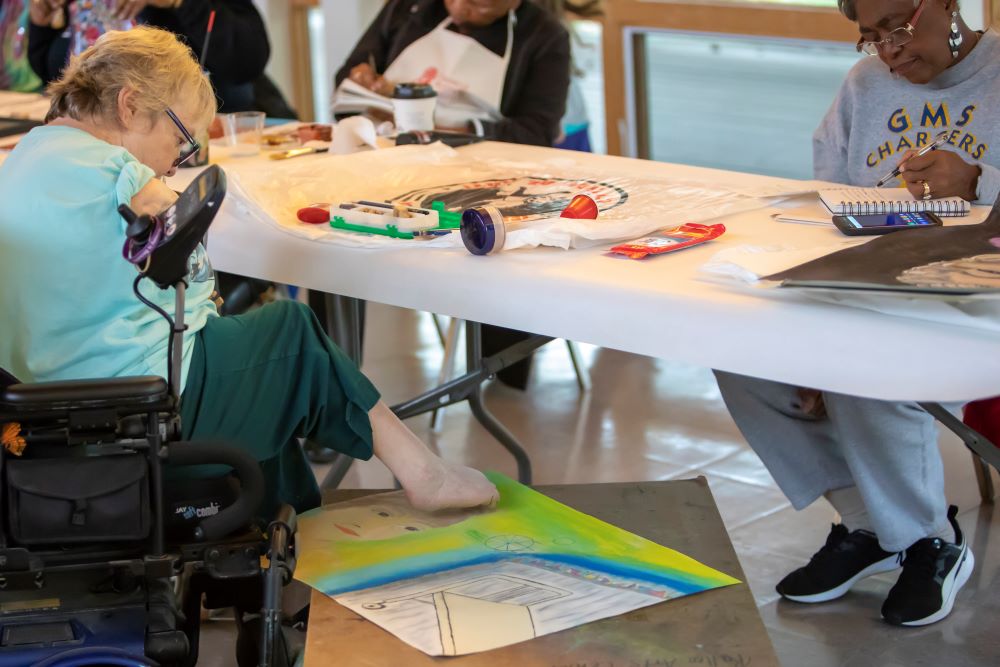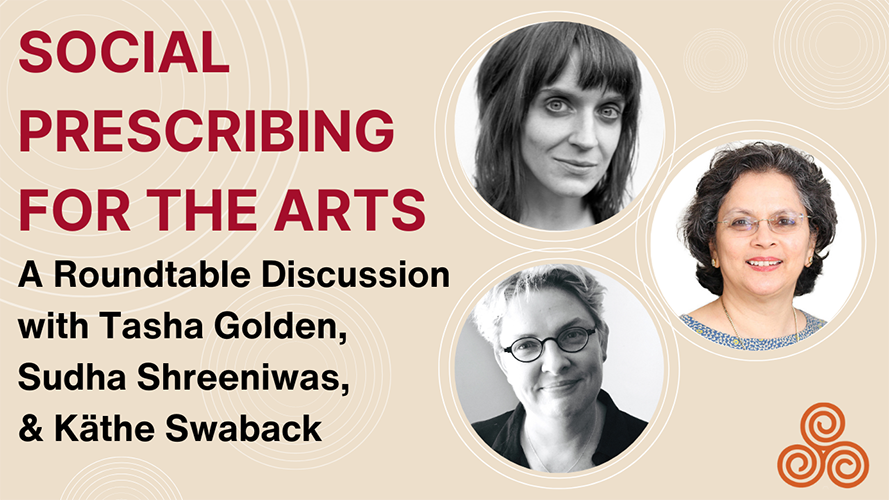
Browse “Academic Institutions”

Reflections Program at Nasher Museum of Art at Duke University
For individuals living with Alzheimer’s and their care partners, it can be challenging to find inclusive, understanding environments that support joy, connection, and learning. This video highlights Reflections, a program offered through a partnership between the Nasher Museum of Art at Duke University and the Duke Family Support Program. Together, they create affirming, judgment-free spaces where participants can explore art, build community, and feel truly seen. To illustrate the program’s impact, the video follows two participant-caregiver pairs as they engage with the program, offering a glimpse into its emotional impact and the meaningful relationships that grow from shared creative experiences.
Wisconsin Memory Café Programs: A Best Practice Guide
This concise comprehensive guide offers a detailed framework for creating and operating Memory Cafés — welcoming social spaces designed to support individuals living with memory loss and their caregivers. Covering everything from foundational vision and terminology to practical considerations such as location, funding, marketing, and program design, the guide also addresses visitor engagement and program assessment. Beyond the cafés themselves, it explores opportunities for broader community impact and important considerations for sustainability.
Creating Healthy Communities Through Cross-sector Collaboration
From the University of Florida’s Center for Arts in Medicine Website:
The Creating Healthy Communities through Cross-sector Collaboration white paper presents the views of more than 250 thought leaders from the public health, arts and culture, and community development sectors who were convened in working groups in 2018 and 2019. Their voices are joined by over 500 participants in a national field survey and focus groups, and are supported by findings of a scoping review of arts + public health literature.
With the public health sector as a primary intended audience, the Creating Healthy Communities through Cross-sector Collaboration white paper frames the value of the arts and culture for advancing health and well-being in communities. It offers examples and recommendations for expanding cross-sector collaboration and innovation, with the following goals:
- Advance collaboration among those working at the intersections of art and culture, public health, and community development
- Stimulate upstream interventions—aimed at systems, cultures, and policies—that reduce barriers to health and well-being
- Assert the value of arts and culture for increasing health, wellbeing, and equity in communities
- Foster transformative social change that advances health and wellbeing
This paper is also intended to offer value and guidance to community development, arts and culture, and other allied health sectors by providing examples of impactful cross-sector collaborations that engage arts and culture to address five critical public health issues: collective trauma, racism, social isolation and exclusion, mental health, and chronic disease. These concrete examples inform the paper’s recommendations and call to action, which assert the value of the arts and culture for community health transformation, and for advancing the culture of health being envisioned today.
Arts on Prescription: A Field Guide for U.S. Communities
Arts on Prescription: A Field Guide for US Communities offers a roadmap for communities to develop programs that formally integrate arts, culture, and nature resources into local health and social care systems. Arts on prescription programs allow healthcare providers and social service agencies to “prescribe” arts activities, cultural experiences, and time in nature to support their patients’ or clients’ health, wellbeing and quality of life.
Listen to Tasha Golden and Jill Sonke discuss the field guide in-depth during the University of Florida Center for Arts in Medicine webinar.

Empowering Creativity for All: How Universal Design Makes Creative Aging Programs Thrive
In this issue of The Creative Aging Resource Journal, we explore the importance of integrating universal design principles in creative aging practices, and feature accessibility tips and program examples from Lifetime Arts Trainers.
What Do the 7 Principles of Universal Design Look Like in the Art Room?
Lindsey McGinnis shares how universal design principles support inclusion and accessibility in art programs. Much of this is applicable to creative aging programs so this can be a helpful resource for teaching artists.

Social Prescribing for the Arts: A Promising Framework for Arts & Health Collaboration in the U.S. & Beyond
In this issue, we explore the emerging research and practices of social prescribing for the arts (SPA) and discuss the future of SPA efforts as a vital component of arts and health services in the U.S., especially for older adults. This issue starts framing answers to key questions related to the challenges and opportunities this practice surfaces in healthcare and creative aging. Featured in this issue is a recorded conversation between three leading experts on SPA in the U.S.: Tasha Golden, S. Sudha, and Käthe Swaback.
*This email is an abridged version of our our full issue, which contains in-depth analysis and numerous resources on social prescribing. You can read the full issue here.
Social Prescribing and Creative Aging Resources
The following resources include research and studies, reports, programs, and initiatives on social prescribing developed, researched, and/or supported by Tasha Golden, PhD, Director of Research at the International Arts + Mind Lab at Johns Hopkins Medicine; Sudha Shreeniwas, PhD, Professor in the Department of Human Development and Family Studies at University of North Carolina Greensboro; and Käthe Swaback, Program Officer, Mass Cultural Council (Creative Youth Development and CultureRx: Social Prescription Pilot Program).

Social Prescribing for the Arts: A Promising Framework for Arts & Health Collaboration in the U.S. & Beyond
In this roundtable discussion, we explore the emerging research and practices of social prescribing for the arts (SPA) in the U.S. and other countries with arts and health professionals; Tasha Golden, PhD, Director of Research at the International Arts + Mind Lab at Johns Hopkins Medicine; S. Sudha, PhD, Professor in the Department of Human Development and Family Studies at University of North Carolina Greensboro; and Käthe Swaback, Program Officer, Mass Cultural Council (Creative Youth Development and CultureRx: Social Prescription Pilot Program). This interview is part of The Creative Aging Resource Journal from Lifetime Arts. Download an enhanced transcript (with links).
Subscribe for free to our online journal
Read previous journals
Check Out our Other Online Resources:
The music track in this interview is credited to BenSound.